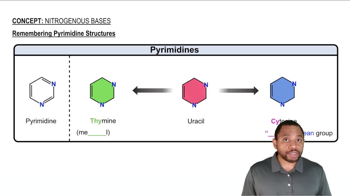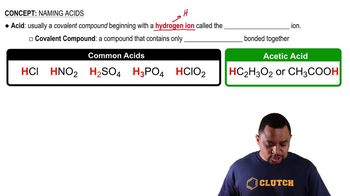Here are the essential concepts you must grasp in order to answer the question correctly.
Biomolecules
Biomolecules are organic molecules that are essential for life, including proteins, nucleic acids, carbohydrates, and lipids. They play critical roles in biological processes, serving as structural components, energy sources, and signaling molecules. Understanding the types of biomolecules and their functions is crucial for identifying those synthesized in the body that utilize nitrogen.
Recommended video:
Intro to Lipids Concept 2
Nitrogen Metabolism
Nitrogen metabolism refers to the biochemical processes that involve the incorporation and utilization of nitrogen in living organisms. This includes the synthesis of amino acids, nucleotides, and other nitrogen-containing compounds. Recognizing how nitrogen is metabolized helps in understanding the formation of various biomolecules and their significance in health and disease.
Recommended video:
Nitrogenous Bases Concept 2
Uric Acid and Gout
Uric acid is a waste product formed from the breakdown of purines, which are nitrogen-containing compounds found in many foods and synthesized in the body. When uric acid levels become excessively high, it can lead to the formation of crystals in joints, causing gout, a painful inflammatory condition. This relationship highlights the importance of nitrogen-containing biomolecules in both normal physiology and pathological conditions.
Recommended video:
 Verified step by step guidance
Verified step by step guidance


